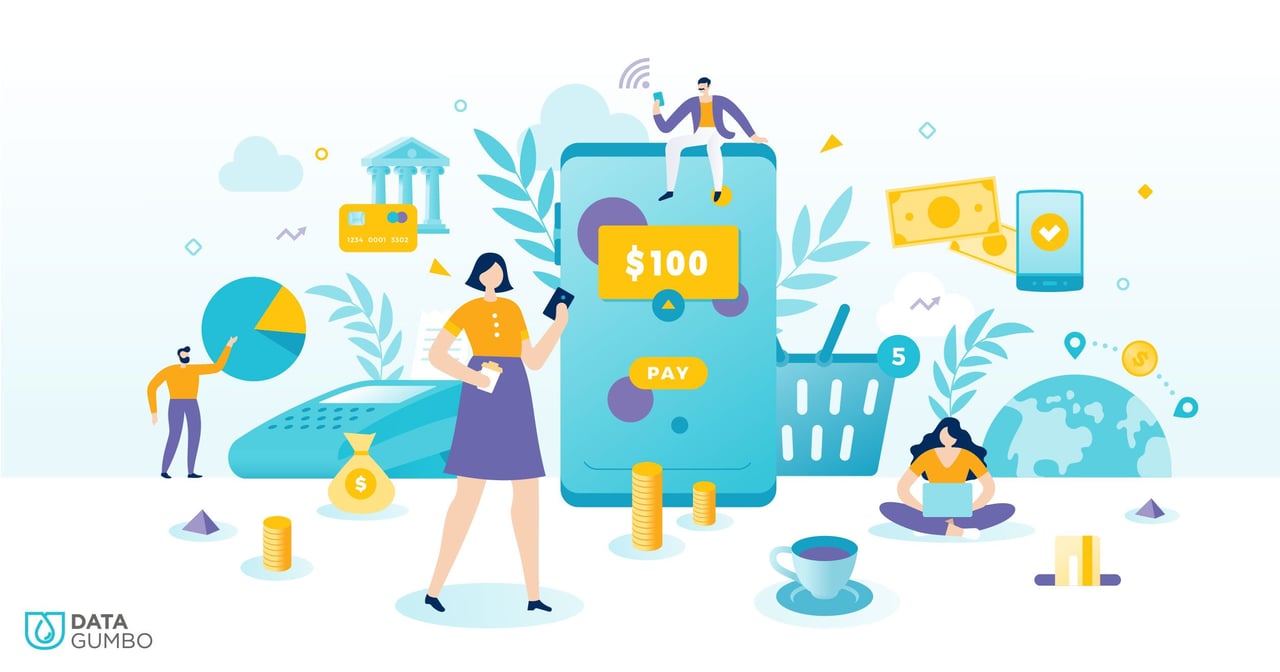It's Time For Modern Enterprise To Automate Transactions
There's an earnest Reddit thread titled as the query, "Prior to online banking and the internet, how did people pay their bills?"
The comments include a range of nostalgic philosophical waxings involving the United States Postal Service, antiquated paper billing/invoice processes, in-person bank visits, the fine art of checkbook balancing, trudging through the snow uphill both ways to collect paychecks and so on. The main takeaway, in accumulated hindsight, is that it was an incredibly inefficient and time-consuming process to get paid and, consequently, to pay what you owed — not to mention the meticulous record-keeping required to avoid bouncing checks or missing a payment due date and suffering undesirable financial penalties.
That's an isolated look at a personal bank account before the internet. Extrapolate the same pain out for business, and the issues exponentially multiply across the vast ecosystem of vendors, suppliers and counterparties. In the U.S. alone, over $3.1 trillion is the net amount tied up in business-to-business (B2B) accounts receivables on any given day.
On an individual scale, bills are now (mostly) paid automatically, drafted from a bank account in a fashion that requires little to no human oversight. Likewise, the internet exists and technology solutions avail to change how businesses function. So then why does modern enterprise insist on maintaining the status quo of manual, paper-based processes that include admin-centric invoice payment systems and human signatures or signoffs? Why not shift to an instantaneous model rooted in real-time transactions, one that consumers use almost daily?
Modern enterprise needs to up the technology ante, using the internet as a commercial backbone for connectivity, speed and automation to eradicate informational and transactional waste. With global spending on digital transformation expected to increase to $2 trillion by next year, it's high time that companies reshape future operations with an eye to mitigating contract inefficiencies.
Proven Technology At The Ready
Just as the internet forever shifted the world's communications style and created revolutionary new consumer pathways, connectivity in the form of Internet of Things (IoT) devices like the Ring doorbell or Fitbit activity monitor also issued a seismic change. In tandem, the industrial realm's Industrial Internet of Things (IIoT) — the billions of industrial devices including sensors, robotics, drones, networks and other collectible data streams — is forging new abilities to capture, measure and record previously unavailable data streams, which, in turn, are fueling new approaches to the way the world does business.
Contracts are foundational to commercial relationships, yet accuracy, certainty and speed have long been neglected as an underpinning in this critical business process. Smart contracts powered by blockchain technology are pioneering a guaranteed method for transactional certainty. Much like the internet changed individual bill-pay methodologies, smart contracts are changing business operations by enabling unprecedented efficiency through real-time, auditable, accurate and automated transactions free of friction and waste.
Where To Start With Smart Contracts
Similar to how a consumer pumps gas at a gas station — swiping a credit card and pumping gas into a vehicle — smart contracts support transactions in real time. At a gas pump, what are essentially tacit nonverbal contracts are executed as each individual agrees to pay for the amount of gas pumped on the spot. The consumer doesn't drive away and receive an invoice to pay 30 to 90 days after the transaction.
Smart contracts operate similarly. The technology generates an immutable record of real-world events used to inform, automate and execute transactions. Consisting of digitized commercial terms that function in lockstep with natural language contracts, smart contracts can automatically create invoices based on the data received in real time measured against codified pre-agreed performance metrics.
To get started with this type of technology, companies simply need to identify an existing contract to automate. Depending on the intent and commercial terms of a natural language contract, the implementation of a smart contract may require different levels of engagement plus the occasional third-party data provider. Any commercial transaction in which data is available to corroborate that terms have been satisfied offers a plausible scenario for application when counterparties agree upon business logic, data sources and terms.
By standardizing processes to collect, calculate, generate and pay invoices without human interaction, smart contracts can vastly reduce invoicing from multistep processes down to one or two steps and include programming to navigate data tolerances and triggers. Modern enterprise no longer needs to operate in the dark ages of pre-connectivity with informational and transactional friction exacerbated by lagging manual workflows.
Automated smart contracts are the contemporary parallel to support better, real-time financial visibility that can help companies capture value, streamline operations and thrive in current circumstances and beyond. After all, who still trudges uphill (or down) to collect a physical paycheck?
--
This article, authored by Andrew Bruce, originally appeared at Forbes Technology Council.



